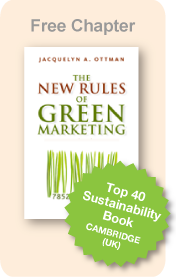Jacquie Ottman's
Green marketing Blog

Demystifying Biobased Products Keys to Marketing Success
Posted on December 06, 2012 by Jacquie Ottman & Mark Eisen
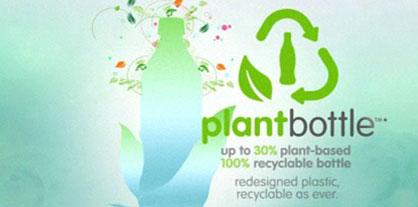
Communicating the benefits of “biobased” content, the world’s newest ecological marketing term, is often tricky. Biobased represents all of green marketing’s traditional challenges — including greenwash — but has additional, unique challenges all its own. Happily, strategies and a credible third party label now exist.
Opportunities For Biobased Products and Packaging
There are many reasons for a business to use biobased content instead of traditional petroleum-based ingredients in their products, including: it helps grow the farm economy, promotes energy independence, and helps …Read more...
The Rise of the Biobased Economy — and Why Brand Owners Need to Develop a Strategy in 2012
Posted on January 11, 2012 by Jacquie Ottman & Mark Eisen
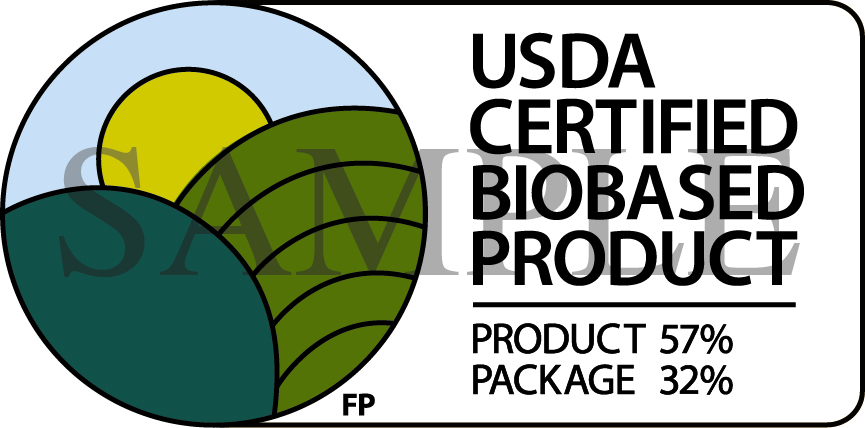 Our economy is slowly but surely heeding the signal that carbon is the new watchword. During the past few years, a steady stream of so-called “biobased” products have been making their way to retail shelves — compostable dinnerware made from corn, plant-based laundry detergents, and bamboo flooring among them. Coke and Pepsi are now competing to be first to market with a soft drink bottle derived entirely from sugarcane or other plant materials.
Our economy is slowly but surely heeding the signal that carbon is the new watchword. During the past few years, a steady stream of so-called “biobased” products have been making their way to retail shelves — compostable dinnerware made from corn, plant-based laundry detergents, and bamboo flooring among them. Coke and Pepsi are now competing to be first to market with a soft drink bottle derived entirely from sugarcane or other plant materials.
The emerging biobased economy even has …Read more...
EPA’s Design for the Environment Label — A Route to Safer Chemicals
Posted on November 21, 2011 by Jacquelyn Ottman
Some chemicals are safer than others, and the U.S. EPA’s Office of Pollution Prevention and Toxics’s voluntary Design for the Environment label can help consumers identify all purpose cleaners, laundry detergents and oth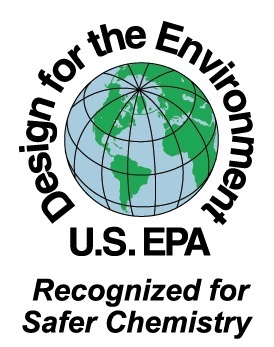 er products that have met performance measures and are known to contain the safest possible ingredients. Since its inception in 1997, the label has been earned by over 2700 products. (Full disclosure: DfE is a former client of mine.)
er products that have met performance measures and are known to contain the safest possible ingredients. Since its inception in 1997, the label has been earned by over 2700 products. (Full disclosure: DfE is a former client of mine.)
A product of EPA’s now twenty-year-old Design for the Environment (DfE) Program, the …Read more...
How to Choose the Right Eco-label for Your Brand
Posted on October 19, 2011 by Jacquelyn Ottman
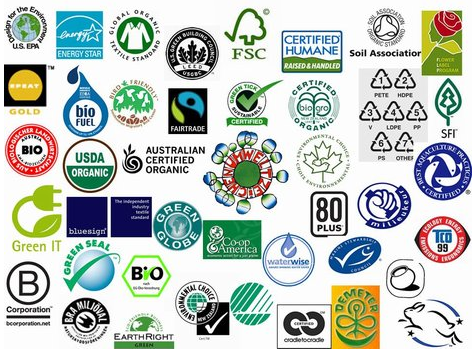 Eco-labels are an excellent way to enhance credibility for green marketing claims, but they are not without risk. While 28% of consumers look to green certification seals or labels to confirm that a product adheres to claims, these labels can also confuse. Happily there’s enough method within the madness for marketers to pave a way forward.
Eco-labels are an excellent way to enhance credibility for green marketing claims, but they are not without risk. While 28% of consumers look to green certification seals or labels to confirm that a product adheres to claims, these labels can also confuse. Happily there’s enough method within the madness for marketers to pave a way forward.
Eco-labeling challenges
More than 400 different eco-labels or green certification systems are now on the market. Questions such as which label is better, which product is …Read more...
Earth to Eco-Labels: Be Consumer Useful or Wither From Lack of Relevance
Posted on August 10, 2011 by Jacquelyn Ottman
Everyone lauds eco-labels being put forth by such sustainability leaders as Timberland, HP and Levi’s for transparency and commitment, but are they really all that useful to consumers? Likely not. These labels may be informative and project credibility, but I believe their usefulness can—and must—be taken up a notch.
An eco-label’s greatest value is not its ability to simply convey environmental stewardship; rather, an eco-label’s worth lies in how clearly it relates green qualities to what I call “consumer-useful” information. Labels with consumer-useful information put the practical, valuable aspects …Read more...
Green Marketing 3.0 Can Re-ignite Interest in Green
Posted on November 15, 2010 by guest blogger, Jeff Dubin
Rumors of green’s demise are being greatly exaggerated. In this year of fiery political passions, the word “revolt” is in the air. However, I think Ad Age inhaled a whiff of the zeitgeist and incorrectly applied the term to consumers supposedly cooling in their ardor for green products. “Has Green Stopped Giving? Seeds of Consumers Revolt Sprouting Against Some Environmentally Friendly Product Lines” trumpets the headline of a recent Ad Age article. The author quotes Timothy Kenyon, director of GfK Roper’s Green Gauge study who more judiciously describes the …Read more...
Terrachoice’s Sins of Greenwashing Report—Time for Industry Self-Regulation?
Posted on November 08, 2010 by Jacquelyn Ottman
 Most of you are familiar with Terrachoice’s “Seven Sins of Greenwashing” report. On a webinar aired in late October, CEO Scott McDougall admitted that his firm never intended to be malicious in their use of the term, “sins”. He believes that most of the “sins” of greenwashing being committed today are really not sins at all, but rather, inadvertent missteps.
Most of you are familiar with Terrachoice’s “Seven Sins of Greenwashing” report. On a webinar aired in late October, CEO Scott McDougall admitted that his firm never intended to be malicious in their use of the term, “sins”. He believes that most of the “sins” of greenwashing being committed today are really not sins at all, but rather, inadvertent missteps.
Call me literal, or not a fan of hyperbole, but I believe that calling, in effect, …Read more...
Green Marketing Myopia and the SunChips “Snacklash”
Posted on October 27, 2010 by Jacquie Ottman & Mark Eisen
 Many marketing experts have weighed in on what they believe to be the reasons for the current backlash against SunChips’s new compostable chip package: excess noise. If you somehow missed it, consumers complained so loudly about the snack food’s new environmentally preferable but noisy corn-based bag that the brand reverted to the old packaging for most of its line. Before we blame consumers once again for not sacrificing a little inconvenience for the sake of the planet, let’s …Read more...
Many marketing experts have weighed in on what they believe to be the reasons for the current backlash against SunChips’s new compostable chip package: excess noise. If you somehow missed it, consumers complained so loudly about the snack food’s new environmentally preferable but noisy corn-based bag that the brand reverted to the old packaging for most of its line. Before we blame consumers once again for not sacrificing a little inconvenience for the sake of the planet, let’s …Read more...
EPA’s Role in Advancing Sustainable Products—and You
Posted on September 23, 2010 by Jacquelyn Ottman
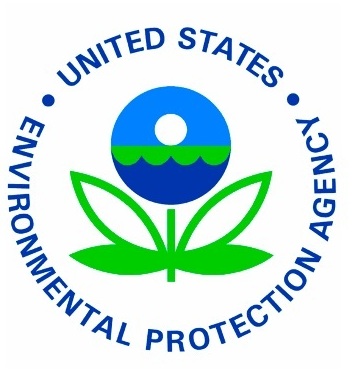
According to a new entry in the Federal Register, EPA is now soliciting individual stakeholder input regarding the Agency’s role in the “green” or sustainable products movement. The Agency will consider the information gathered from the Federal Register notice as well as from other sources as it works to define its role and develop a strategy that identifies how EPA can make a meaningful contribution to the development, manufacture, designation, and use of sustainable products.
This represents an important opportunity for …Read more...
How Nike Reduces Toxicity to Balance Consumer Needs with Enhanced Corporate Reputation
Posted on January 28, 2010 by Jacquelyn Ottman
Toxicity affects products at every stage of their life cycle, so naturally, reducing toxicity is good for business. As I discuss at more length in my latest book on green marketing to be released later this year, it reduces the liability associated with worker rights, and via alternatives that are safer to handle, can enhance productivity and cut workers’ compensation claims. And of course, there’s the opportunity to market to the growing number of mainstream consumers looking for safer alternatives.
Nike’s Considered line of reduced toxic shoes
Nike aims to …Read more...
Underscore Health Benefits to Add Relevance to Green Marketing Messages
Posted on January 13, 2010 by Jacquelyn Ottman

As I have said numerous times over the years, the number one reason why consumers buy greener products is not to “save the planet” but to save their own health. AFM understands this well—and puts their understanding of this green marketing fundamental to work in two ads that do a great job of underscoring the health benefits of their line of Safecoat paint.
One ad features 16 buckets of paint lined up in a row. Fifteen of the buckets are painted …Read more...
How to Avoid Greenwash
Posted on January 09, 2010 by Jacquelyn Ottman
Greenwashing—communicating (even unintentiionally) that one’s product or company is greener than it actually is—is the Number One challenge of green marketers today. Greenwashers can expect swift retribution from consumers, advocates and the media in the forms of lost sales and tarnished reputation.
To help smooth the way for our clients and other green marketers, I’ll be moderating a special virtual conference on Thursdday, Jan 14, 2010. It’s called: Building Credibility, Avoiding Greenwash.
Join us online for a look at unfolding strategies and best practices for establishing credibility for your sustainable …Read more...
Guest Blog: Green Marketing and the Simultaneous Pursuit of Growth and Reputation Enhancement
Posted on October 16, 2009 by Jacquelyn Ottman
This is a guest blog post, written by Eric Lowitt.
A company that I admire shared a story that highlights a green marketing conundrum faced by a growing number of companies. The story, told by a progressive drink distributor, went something like this:
The company held an off-site with the salesforce dedicated to one of their key accounts. The company invited executives from the key account to present ways the company could increase sales through the account. Nestled among the usual suspects was “prove that you are a sustainability leader.”
…Read more...
Why Jacquie Ottman’s Green Marketing Remains Relevant
Posted on September 08, 2009 by Jacquelyn Ottman
Guest post by Peter Korchnak, who writes the Sustainable Marketing Blog.
I recently read for the first time and reviewed Jacquie Ottman's Green Marketing: Opportunity for Innovation (2nd edition) and this is what struck me: "[M]ost of what I read nowadays about sustainability and marketing, Jacquie covered in Green Marketing more than a decade ago."
Though sustainability* has made inroads throughout the corporate world, with the likes of Nike and Walmart implementing sustainable practices on a large scale, green marketing literature and blogs recycle the …Read more...
USDA Proposes Voluntary Label for Biobased Products
Posted on August 03, 2009 by Jacquelyn Ottman
If you're a manufacturer, or part of another organization that deals with "biobased" products (i.e., made out of agricultural, forestry, or marine-based ingredients), you will be interested to know that our client, the USDA is proposing a special eco-label for such products or packages. Examples of products on the government's "BioPreferred" list include PLA-based plastics, vegetable oil-based cleaning fluids, and soaps made from natural ingredients—but not food or fuel.
You have 60 days, (from now until September 29) to comment on this proposed "BioPreferred" eco-labeling …Read more...

